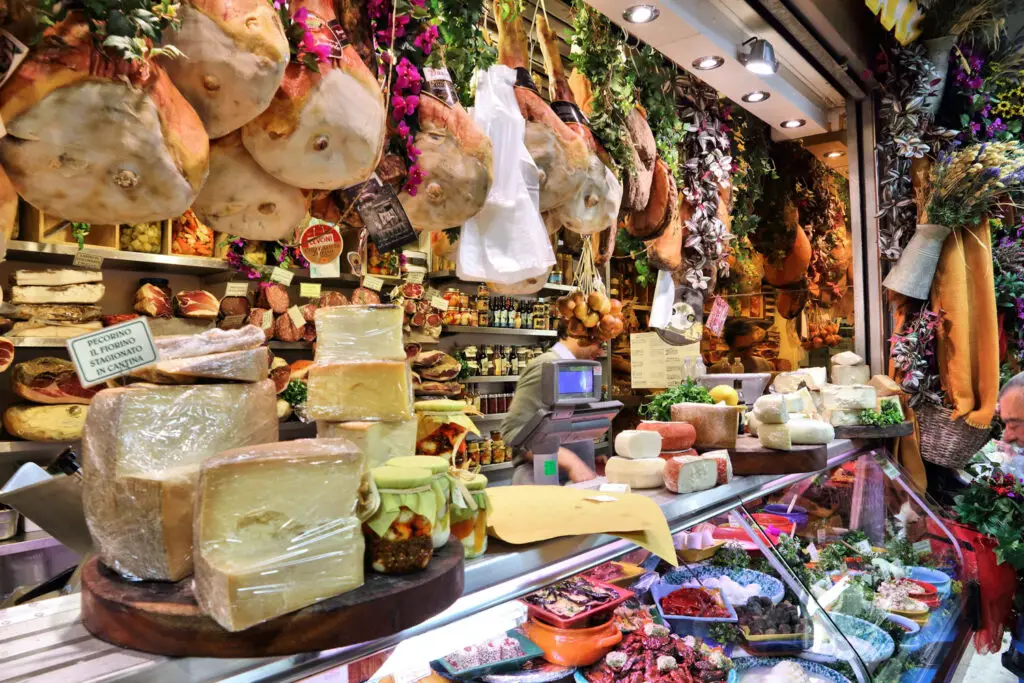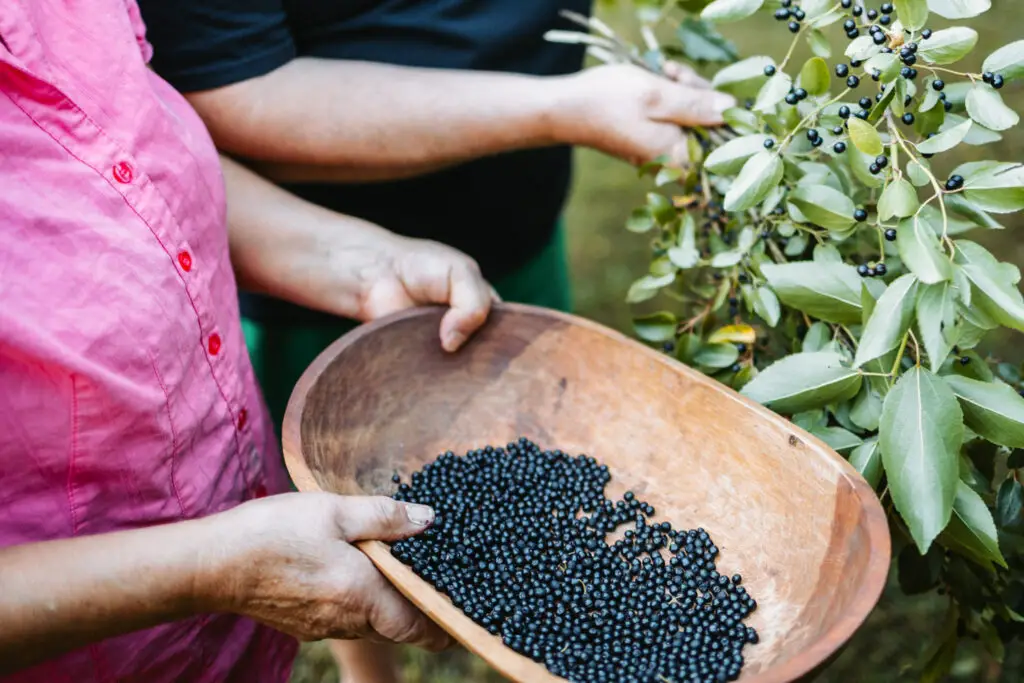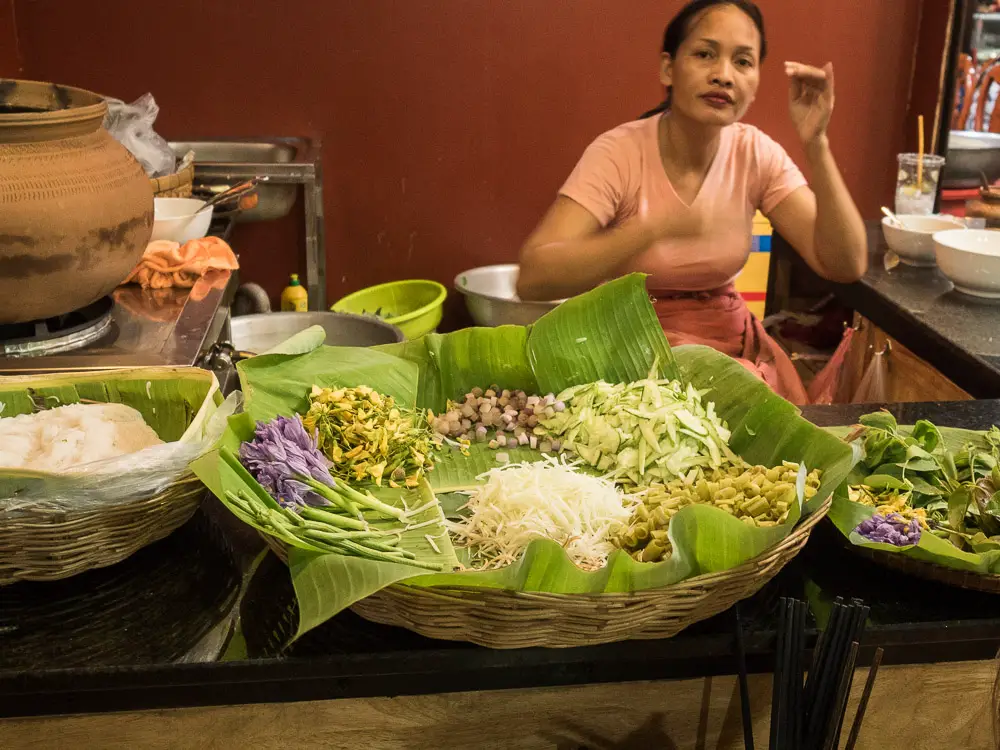As an Amazon Associate I earn from qualifying purchases. Please read Disclaimer Learn more.
What is food tourism? Also known as food tourism or food tourism, it is the exploration of a destination through flavor. It’s a way to really get to know the cultural and culinary identity of a place.
When you decide to take a tour based on the food and drink that an area is known for, you’re entering a world of delicious travel that’s more than just something to satisfy your appetite. An adventure for the senses, your taste buds will lead you as you discover local dishes, traditional techniques and the stories behind every bite.
Picture yourself wandering through vibrant street markets, sampling exotic spices, or sitting with locals over a home-cooked meal.
Food tours feature cooking classes, wine tastings and farm-to-table experiences. This is your chance to learn about the history, people and traditions of an area.

You don’t need to be a food expert to enjoy a food tour; all you need is curiosity and an appreciation for good food. As you plan your next vacation, why not let your cravings be your compass and turn every meal into an opportunity to create unforgettable memories?
What makes food tourism unique is its participatory nature. You’re not just eating; you’re eating. You’re exposed to the world of food, meeting producers, chefs and other food lovers.
This kind of tour encourages immersive experiences, such as picking fresh ingredients on an organic farm or learning to make pasta in an Italian grandmother’s kitchen. The stories and skills you bring back from your trip will be a souvenir that lasts a lifetime.
Whether it’s tasting new flavors or learning about the intricacies of making traditional dishes, food tours offer authentic slices of life wherever you go.
Discover Italy as a culinary destination: The 10 Best Italian Cooking Vacations of 2024: Buon Appetito.
Explore food tourism
Food tourism is all about the pursuit of unique and unforgettable eating experiences. Whether you’re sampling local street food in Mexico or enjoying a fine dining experience in Paris, you’re taking part in a delicious journey.
Definition and Scope
Gastronomic tourism, also known as food tourism or food tourism, capitalizes on the desire to explore cultures through flavor. Your culinary adventures can range from local cooking classes to winery tours, covering any travel experience where the main goal is to discover new flavors and gastronomic traditions.
according to world gastronomy tourism associationthis form of tourism is not limited to food, but also includes an all-round experience.
History and evolution
The concept of traveling to various destinations to experience the food they have to offer has historical roots.
Over time, it has grown from a leisurely aristocratic trip in the 19th century focused on European haute cuisine to the much broader scope of today. Food bloggers, TV shows and festivals have further popularized this form of tourism, allowing food tourists of all types to enjoy authentic tastes.
Types of food tourism
You’ll find a range of delicious food tour types to satisfy your adventurous appetite:
- Food Festival: A chance to try a variety of dishes at once, often themed around a specific type of food or culture.
- Cooking classes: A first-hand opportunity to understand the intricacies of the region’s cuisine.
- Restaurant tour: The guided tour focuses on a range of restaurants renowned for their authentic and innovative cuisine.
- Street Food Tour: Delve into the heart of the city’s foodie scene on a food tour dedicated to street food.
- Winery/Brewery/Distillery Tours: Discover the world of beverages from production to first sip.
- Farm or market tour: Gain a new perspective by tracking your ingredients from source to table.

Food travel experience
Food tourism emphasizes the delicious intersection between exploring new destinations and tasting unique cuisine. Your journey will take you to taste the essence of the region’s culture and history expressed through its gastronomy.
Taste the local flavor
Savor local specialties and immerse yourself in the richness of local cuisine. Whether it’s a street food stand serving fresh, spicy tacos or a well-known restaurant known for its exquisite pastries, there’s an emphasis on authenticity. You’ll discover the heart of your destination’s culinary identity, from traditional dishes passed down through generations to modern interpretations that incorporate diverse cultural influences.
- local specialty: Taste iconic regional dishes.
- seasonal products: Enjoy food made with the finest ingredients.
- Specialties: Discover the uniqueness of local cuisine.
Food tours and activities
Experience the local scene through organized activities Food tour. These guided experiences often include carefully selected restaurants, each representing an aspect of the culinary landscape. From bustling markets to high-end bistros, you’ll get a comprehensive overview of your destination’s dining scene. And don’t miss your chance to attend cooking classyou can put on an apron and learn to recreate the flavors of your travels in your own kitchen.
- Food tour: Take a guided tour to different food stops.
- cooking class: Learn to prepare local dishes yourself.
- Market inspection: A center for experiencing local food culture.

Interactive food experience
Step into the interactive realm and you are more than just a spectator. Connect with local chefs during a cooking class to share their tips and techniques. Pull up a chair at the communal table and eat and tell stories together, or roll up your sleeves for a cooking workshop. In these experiences, the energy of food and drink is intertwined with education and community, providing you with a deeper connection to the place.
- Chef-led seminar: A deep dive into the craft of cooking.
- wine tasting: Taste various local products.
- food festival: Celebrate with food lovers.
economic and social aspects
Food tourism plays a vital role in shaping the economic and social landscape of a destination. Tourists indulge in local cuisine and contribute significantly to the economic well-being of the region.
Local businesses, including restaurants and farms, directly benefit from travelers seeking authentic dining experiences, creating jobs and community development.
In addition to its economic impact, food tourism also encourages sustainable practices within the food tourism industry. Destinations often promote locally grown and harvested food, which reduces long-distance transportation and minimizes the carbon footprint of consumption.
Additionally, food tourism promotes community and cultural connections. Sharing a meal opens doors to local culture and strengthens bonds within the community.
Global and regional cuisine
Explore the world through taste, allowing you to experience the heart of culture. Each region’s unique flavors and culinary traditions are reflected in their cuisine, which is often a point of pride.
When you embark on a culinary adventure, you’re not just trying new foods; You’re literally tasting the culture’s history and geography on a plate. gourmet food Transformed into an edible map, regional specialties make people feel Taste of place. For example:
- Italy:Think beyond pasta. Each region has its own signature dish, from creamy risotto in the north to rich, olive-oil-rich dishes in the south.
- Japan: Not just sushi and ramen. Exquisite flavors and meticulous presentation reflect the country’s aesthetic and philosophical ideals.
- Mexico: Delve into Mesoamerican and European-influenced dishes, from complex Oaxaca mole to coastal fresh seafood ceviche.
- France: Its gastronomy is the cornerstone of world cuisine. From classic sauces to perfect pies, you’ll enjoy the art of French cooking.
Educational aspect

Explore the educational aspect of culinary tourism and you’ll have the opportunity to expand your knowledge and skills in food preparation and production. Through practical experience and expert insights, you’ll gain insight into the world of cooking.
Cooking workshops and cooking classes
you will enjoy Cooking workshops and cooking classes Professional chefs share their tips. What you will learn:
- Skill: Master the art of slicing, dicing and sautéing.
- recipe: Take home new recipes to impress friends and family.
- Promotional meeting: Understand the importance of electroplating for visual feast.
Brewery and winery tours
Next, Brewery and winery tours Get your feet wet in the beverage industry. What you will experience:
- process: Learn the steps involved in brewing beer or craft wine.
- taste: Develop your palate through guided tastings.
- pair: Understand the art of pairing drinks with food.
Learn about agriculture and local produce
While traveling, a visit to a farm or market can give you a sense of Agriculture and local produce. Here’s what’s on the menu:
- farming methods: Gain a deeper understanding of organic and sustainable practices.
- local ingredients: Discover the freshest local ingredients.
- Seasonal: Learn how to cook according to the seasons for the best flavor.
in conclusion
All in all, food tourism is about more than indulging in a region’s food and drink; it’s about immersing yourself in the culture, traditions and lifestyle of the locals.
Whether you’re sampling farm-to-table cuisine in the countryside or savoring delicacies in a bustling city center, you’re participating in a global phenomenon that promotes sustainability, boosts local economies and deepens cultural connections.
So, next time you ask yourself “What is food tourism?” remember, it’s a taste adventure that connects us to a destination and its people, making the travel experience truly unforgettable.







